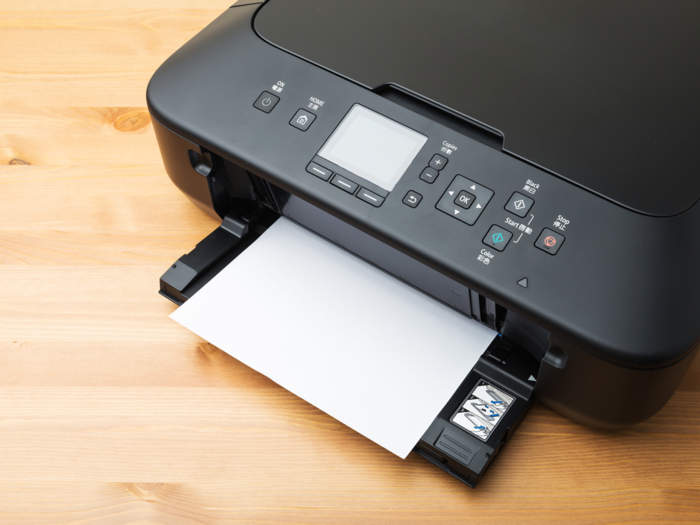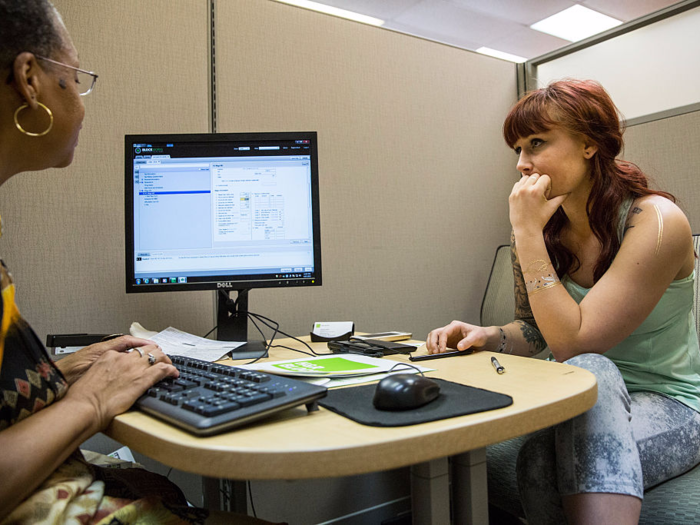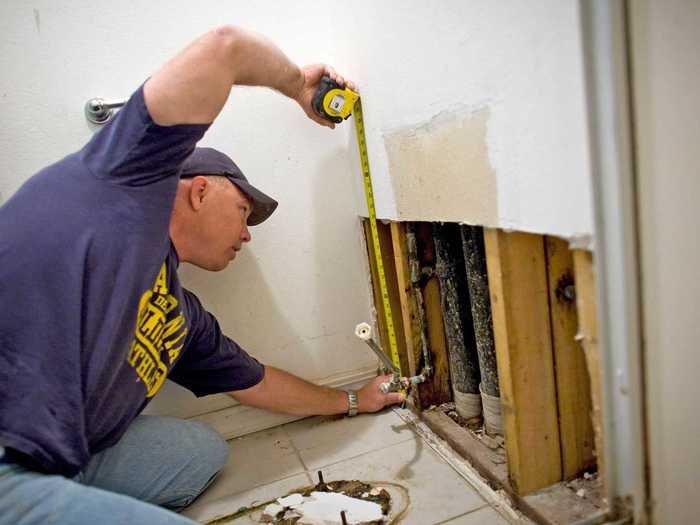- Home
- slideshows
- miscellaneous
- 12 things you didn't know you could write off on your taxes if you work from home
12 things you didn't know you could write off on your taxes if you work from home
Home office

Business equipment

Equipment purchased and used at home for your business such as computers, printers, business tools, and supplies are tax deductible.
“You may be able to deduct the full cost of equipment for the year that you put it in service or you may have to amortize the deduction over time,” Greene-Lewis said.
Megan Gorman, a managing partner at Chequers Financial Management, added that you can also deduct more basic expenses like office supplies and postage.
Business meals

If you’re dining out for business, you can deduct 50% of those costs.
“To do so, you’ll need to be able to show the amount of each expense, where and when the meal took place, and the business relationship of the person you dined with," Brittany Hamilton, the director of operations at the bookkeeping service Bench Accounting, told Business Insider.
"In other words, unless you’re meeting a client, your daily latte addiction isn’t covered,” she said. “I suggest using an app like Shoeboxed or Expensify, so you can keep track of these expenses throughout the year without holding on to the physical copy.”
It’s also important to note that entertainment expenses are no longer deductible.
“This is a big change, as previously you could deduct 50% of the cost,” Gorman said. “If you think about how the business world works, this will impact a lot of self-employed taxpayers, as you can no longer deduct golf outings, concerts, and sporting events.”
Business use of your car

If you use a vehicle for your business, you can fully deduct the costs associated with its business-related usage, including mileage and depreciation.
“Passenger vehicles, trucks, and vans that are used more than 50% for business have a total depreciation deduction of anywhere between $11,060 and $25,000,” Hamilton said. “Double-check how this applies to you, as it differs depending on when it was put into service. The standard mileage deduction currently sits at $0.545 per mile. You can deduct the full amount, even if your actual costs for mileage are less than the current rate.”
Travel and lodging

On a business trip, you can deduct 100% of the cost of travel to your destination, whether that’s a plane, train, or bus ticket. If you rent a car to get there or to get around, that cost is deductible as well, Hamilton said.
“While you can’t directly deduct the expense of bringing friends and family on business trips, some costs can be offset indirectly," she said. "If you’re renting a car or a hotel room, you can fill the extra space and still deduct those costs."
"Keep in mind that if you incur extra costs such as racking up additional mileage or upgrading to a double hotel suite, the expense will no longer be deductible because it isn’t ‘necessary or ordinary.'"
Gorman cautioned tax filers to be reasonable with travel expenses, as the deduction could attract extra attention from the IRS.
“You need to make sure you aren’t being overly extravagant, and it’s important to keep accurate records and receipts," she said.
Telephone and internet

If using the phone and internet are integral to your business (which, they probably are), they’re deductible.
“Keep in mind that if you use your phone and internet connection for personal and business reasons, you can only deduct the percentage of the cost of these expenses that was generated from business-related use,” Hamilton said. “Keeping detailed records to prove the amount of business use will help justify these expenses in the event of an audit.”
Utilities

In the same vein as your telephone and internet bills, water, electricity and other basics deemed necessary to operate your business can be deducted, according to Armine Alajian, accountant and founder of the Alajian Group.
Qualified business income

This is one of the biggest changes for the self-employed with the 2017 Tax Cuts and Jobs Act. The Qualified Business Income, or QBI, deduction will allow you to deduct up to 20% of the net income generated by qualified trades or businesses.
“Generally, the deduction is available to eligible taxpayers whose 2018 taxable incomes fall below $315,000 for joint returns and $157,500 for other taxpayers,” says Greene-Lewis.
If your income is above those thresholds, she said, or your business is considered a "specified service trade or business" such as law, financial services, or performing arts, your 20% deduction may be limited.
Music streaming services

“If you use a music streaming service for business, for example, if you host events or play music in your office to entertain clients, then your Spotify or Apple Music subscription is totally deductible,” Hamilton said.
Insurance premiums

“Provided they are not COBRA payments, you can deduct self-employed health insurance against your income,” Gorman said. Alajian said you can deduct renter insurance and home mortgage insurance for your home office.
Repairs and losses

Things like cleaning your home office and home office repairs can be deducted, Alajian said, as can sudden, unexpected losses due to unusual circumstances in nature, like a fire or flooding.
Retirement plan

Don’t forget to fund a retirement plan if you're self-employed.
A SEP IRA, or Simplified Employee Pension Individual Retirement Arrangement, is a traditional type of IRA for self-employed workers.
“You can fund a SEP IRA with the lesser of 25% of total compensation or $55,000 in 2018, it just has to be funded when you file your return,” Gorman said.
Popular Right Now
Popular Keywords
Advertisement